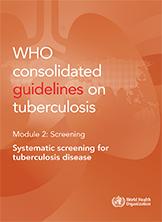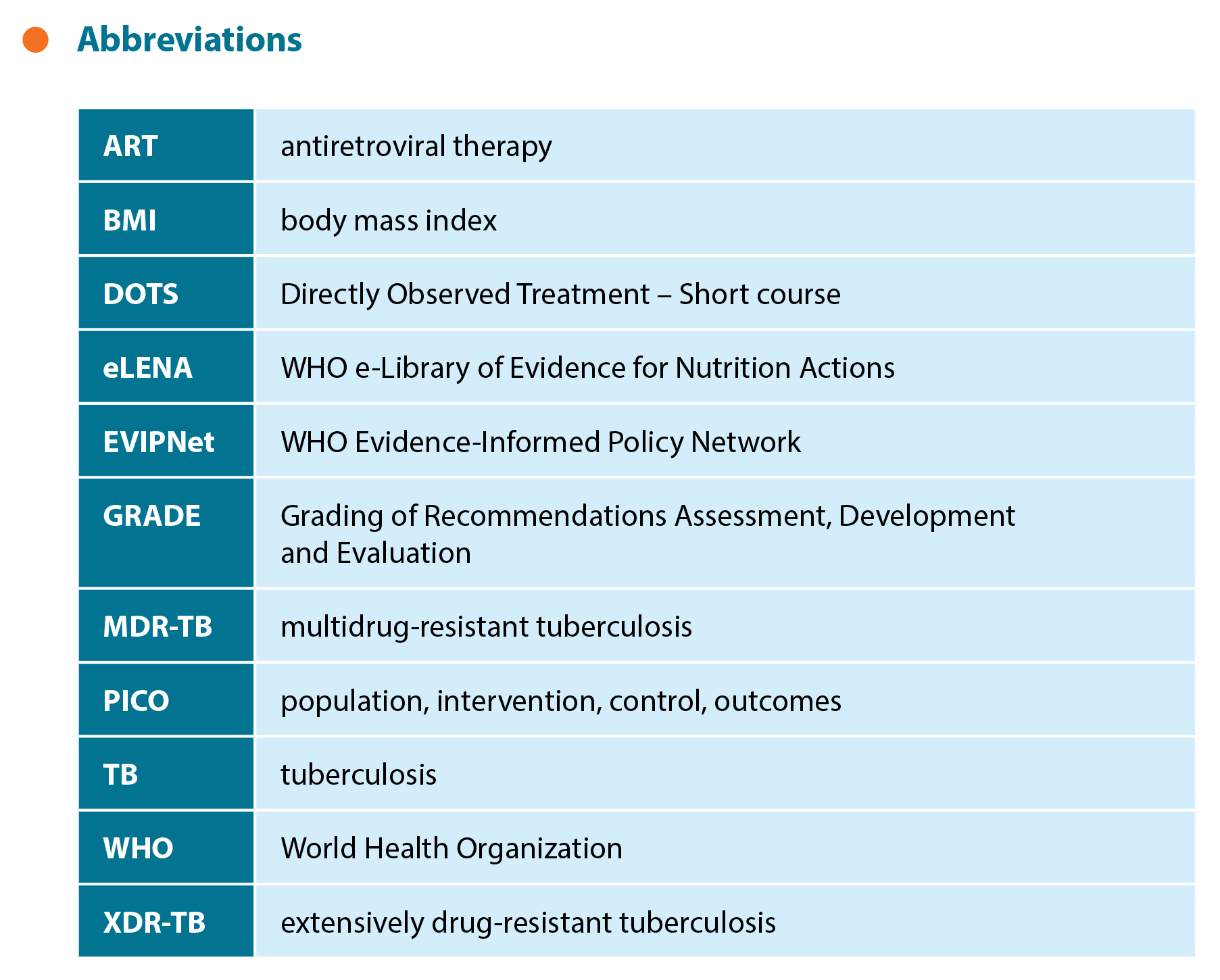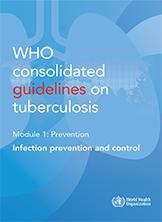Consolidated Guidelines
Financial support
WHO thanks the Government of Luxembourg, the National Institutes of Health (NIH), the United States Agency for International Development (USAID) and the Bill & Melinda Gates Foundation for financial support for this work. Donors do not fund specific guidelines and do not participate in any decision related to the guideline development process, including the composition of research questions, membership of the guideline groups, conduct and interpretation of systematic reviews, or formulation of recommendations.
Acknowledgements
This guideline was coordinated by Dr Maria del Carmen Casanovas and Dr Knut Lönnroth, with technical input from Dr Luz Maria De-Regil, Dr Ernesto Jaramillo, Dr Juan Pablo Peña-Rosas, Mrs Randa Saadeh and Mrs Diana Weil. This work was initiated as part of the general programme of work of the Department of Nutrition for Health and Development, and the Global TB Programme (GTB) in the World Health Organization (WHO) Geneva.
Acknowledgements
The Global Tuberculosis Programme of the World Health Organization (WHO) gratefully acknowledges the contributions that many individuals and organizations (listed in Web Annex A) have made to the development of these guidelines.
Module 2: Screening

3.3.1.5 Molecular WHO-recommended rapid diagnostic tests for all other people living with HIV
The systematic review of the performance of an mWRD used to screen for TB among people living with HIV included 14 studies with a total of 9 209 participants (see Web Annex B, Table 16, and Web Annex C, Table 9). The Xpert MTB/RIF assay was the primary mWRD used in these studies. The prevalence of TB in the studies ranged from 1% to 26%.
3.3.1.3 Chest radiography
CXR is recommended by WHO to be used in parallel with the W4SS where CXR is available to assist in ruling out active TB prior to initiating TPT among people living with HIV who are on ART. The GDG agreed that, due to the increased sensitivity, the evidence supported using CXR in addition to the W4SS as a parallel screening strategy in which a positive or abnormal result on either screen would indicate a referral for diagnostic evaluation.
3.3.1.2 C-reactive protein
CRP is an indicator of general inflammation that can be measured using point-of-care tests performed on capillary blood collected via finger prick. The evidence reviewed for the performance of CRP included 6 studies from Kenya, South Africa and Uganda with a total of 3 971 participants (see Web Annex B, Table 13, and Web Annex C, Table 6).
3.3.1.1 WHO-recommended four-symptom screen
The 2020 meta-analysis of IPD included 23 studies of 16 269 participants living with HIV, all of which reviewed the accuracy of the W4SS. The studies primarily focused on pulmonary TB disease. The unweighted average TB prevalence among participants within these studies was 9.2%, ranging from 1% to 26%; and 52% of people living with HIV screened positive on the W4SS. The sensitivity of the W4SS among all people living with HIV was 83% (95% CI: 74–89) and specificity was 38% (95% CI: 25–53).
Pagination
- Previous page
- Page 41
- Next page

 Feedback
Feedback
